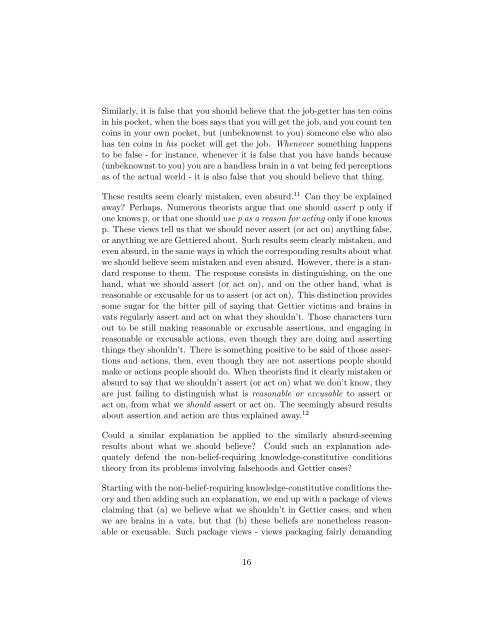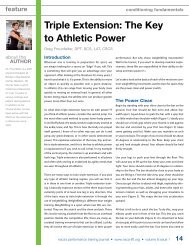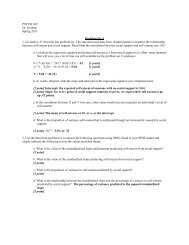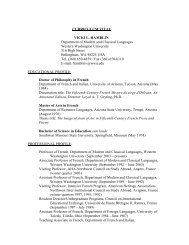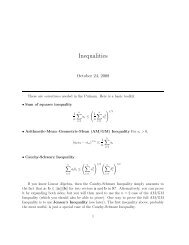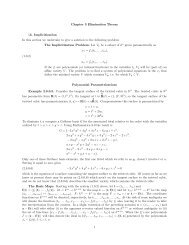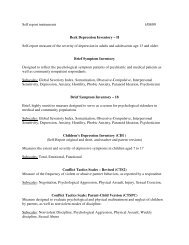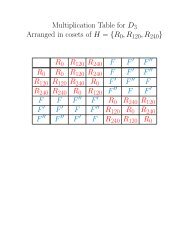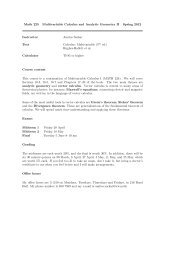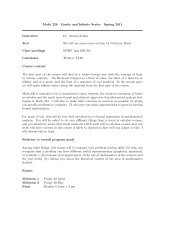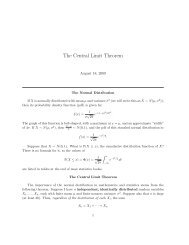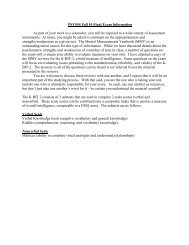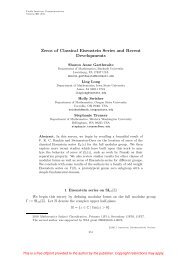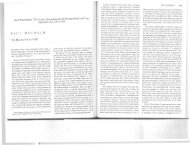Can There Be A Knowledge-First Ethics of Belief? - Western ...
Can There Be A Knowledge-First Ethics of Belief? - Western ...
Can There Be A Knowledge-First Ethics of Belief? - Western ...
You also want an ePaper? Increase the reach of your titles
YUMPU automatically turns print PDFs into web optimized ePapers that Google loves.
Similarly, it is false that you should believe that the job-getter has ten coins<br />
in his pocket, when the boss says that you will get the job, and you count ten<br />
coins in your own pocket, but (unbeknownst to you) someone else who also<br />
has ten coins in his pocket will get the job. Whenever something happens<br />
to be false - for instance, whenever it is false that you have hands because<br />
(unbeknownst to you) you are a handless brain in a vat being fed perceptions<br />
as <strong>of</strong> the actual world - it is also false that you should believe that thing.<br />
These results seem clearly mistaken, even absurd. 11 <strong>Can</strong> they be explained<br />
away? Perhaps. Numerous theorists argue that one should assert p only if<br />
one knows p, or that one should use p as a reason for acting only if one knows<br />
p. These views tell us that we should never assert (or act on) anything false,<br />
or anything we are Gettiered about. Such results seem clearly mistaken, and<br />
even absurd, in the same ways in which the corresponding results about what<br />
we should believe seem mistaken and even absurd. However, there is a standard<br />
response to them. The response consists in distinguishing, on the one<br />
hand, what we should assert (or act on), and on the other hand, what is<br />
reasonable or excusable for us to assert (or act on). This distinction provides<br />
some sugar for the bitter pill <strong>of</strong> saying that Gettier victims and brains in<br />
vats regularly assert and act on what they shouldn’t. Those characters turn<br />
out to be still making reasonable or excusable assertions, and engaging in<br />
reasonable or excusable actions, even though they are doing and asserting<br />
things they shouldn’t. <strong>There</strong> is something positive to be said <strong>of</strong> those assertions<br />
and actions, then, even though they are not assertions people should<br />
make or actions people should do. When theorists find it clearly mistaken or<br />
absurd to say that we shouldn’t assert (or act on) what we don’t know, they<br />
are just failing to distinguish what is reasonable or excusable to assert or<br />
act on, from what we should assert or act on. The seemingly absurd results<br />
about assertion and action are thus explained away. 12<br />
Could a similar explanation be applied to the similarly absurd-seeming<br />
results about what we should believe? Could such an explanation adequately<br />
defend the non-belief-requiring knowledge-constitutive conditions<br />
theory from its problems involving falsehoods and Gettier cases?<br />
Starting with the non-belief-requiring knowledge-constitutive conditions theory<br />
and then adding such an explanation, we end up with a package <strong>of</strong> views<br />
claiming that (a) we believe what we shouldn’t in Gettier cases, and when<br />
we are brains in a vats, but that (b) these beliefs are nonetheless reasonable<br />
or excusable. Such package views - views packaging fairly demanding<br />
16


